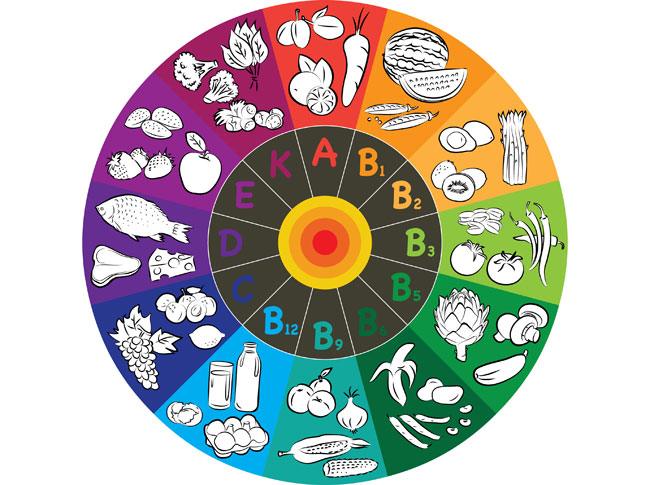
While we give nutrients like vitamins C and E a huge amount of limelight, there is a “secret” master antioxidant that can help prevent numerous conditions including aging, cancer, heart disease, and dementia.
Yes, we can get it as a supplement, but there are more effective ways to build this antioxidant.
It’s called glutathione (pronounced “gloota-thigh-own”): the mother of all antioxidants, the master detoxifier, and maestro of our immune system.
Glutathione is a very simple molecule our bodies make from three amino acids: cysteine, glycine, and glutamine.
Its sulfur chemical groups provide glutathione’s benefits. Sulfur is a sticky, smelly molecule that acts like flypaper. All the bad things in our body stick onto it, including free radicals and toxins like mercury and other heavy metals.
Our bodies can make their own glutathione. Yet many things—including a poor diet, pollution, toxins, medications, stress, trauma, aging, infections, and radiation—can quickly deplete this crucial antioxidant.
Normally our bodies can also recycle glutathione, except when our toxic load becomes too great.
That becomes a serious problem because glutathione recycles other antioxidants. Dealing with free radicals is like handing off a hot potato—they get passed around from vitamin C to vitamin E to lipoic acid, and then finally to glutathione, which cools off those free radicals. After this happens, the body can “reduce” or regenerate another protective glutathione molecule. Score!
But lower glutathione levels ramp up oxidative stress, free radicals, infections, and cancer. Low levels also overload and damage our livers, making them unable to detoxify.
As a medical doctor, I’ve seen glutathione deficiencies in nearly all of my ill patients, including those with chronic fatigue syndrome (CFS), heart disease, cancer, chronic infections, autoimmune disease, diabetes, autism, Alzheimer’s disease, Parkinson’s disease, arthritis, asthma, kidney problems, and liver disease.
Our bodies’ ability to produce and maintain high glutathione levels becomes critical to recovery from nearly every chronic illness, preventing disease, and maintaining optimal health and performance.
Optimal glutathione levels can benefit:
- Immune health. Glutathione helps fight infections and prevent cancer, and some studies show it can help treat AIDS.
- Detoxification. Glutathione is the most critical and integral part of our detoxification system. All those toxins stick onto glutathione, which then carries them into bile and the stool to discard.
- Peak mental and physical function. Research shows increased glutathione levels decrease muscle damage, reduce recovery time, increase strength and endurance, and shift metabolism from fat production to muscle development.
To get these and other benefits, we obviously want to optimize this master antioxidant. While glutathione supplements can help, these three strategies help our bodies naturally build glutathione:
- Eat glutathione-boosting foods. Consume sulfur-rich foods including garlic, onions, and cruciferous vegetables like broccoli, kale, collards, cabbage, cauliflower, and watercress.
- Exercise frequently. Exercise boosts our glutathione levels and thereby helps boost our immune system, improve detoxification, and enhance the body’s antioxidant defenses. Gradually build up to 30 minutes a day of vigorous aerobic exercise like walking or jogging, or playing various sports. Strength training for 20 minutes three times a week is also helpful.
- Take the right supplements.
Certain nutrients help our bodies build glutathione. They include:
- N-acetyl-cysteine. We’ve used this nutrient for years to help treat asthma, lung disease, and to treat people with life-threatening liver failure from Tylenol overdose. I first learned about it in medical school while working in the emergency room. We even used it to prevent kidney damage from dyes used during X-ray studies
- Alpha-lipoic acid. This is a close second to glutathione in our cells. It’s involved in energy production, blood sugar control, brain health, and detoxification. The body usually makes alpha-lipoic acid, but considering the constant stress many of us experience, supplies often become depleted.
- This important mineral helps our body recycle and produce more glutathione. A good multivitamin-mineral should contain optimal amounts of selenium. We can also get selenium from foods like Brazil nuts and wild-caught fish.
If you’ve ever helped your body build its own glutathione levels, what one strategy would you add to build this master antioxidant? Share your story below or on my Facebook page.
Author: Dr. Mark Hyman
Image: Google Images for Reuse
Editor: Emily Bartran


 Share on bsky
Share on bsky




Read 2 comments and reply